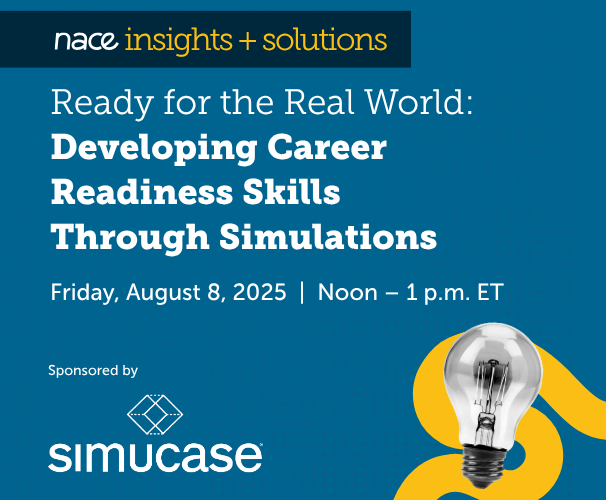NACE Journal / Spring 2025
See Using the Career State Inventory to Evaluate Career Interventions
The reliability of the CSI alludes to internal consistency or the precision of scores associated with the overall career decision state at the time the measure was administered. Combining data across several studies (n = 425), this three-item scale (uncertainty, satisfaction, and clarity) possessed a Cronbach alpha of r = .74, and inter-item correlations of .63 (OAQ/SAT), .36 (OAQ/Clarity), and .59 (SAT/Clarity).1 Thus, this scale possesses an acceptable level of commonality across the items and independence among them. This measure may also be considered to produce normally distributed scores in college student populations with mean = 6.21, SD = 2.45, median = 6.00, skew = -.004, and kurtosis = 1.33. The standard error of measure (SEM) = 0.12.
A different analysis found that certainty, satisfaction, and clarity could be treated as independent variables with correlations among them, r = .575, .350 and .562, respectively, on the CSI.2 Another reported a stability coefficient for the CSI with 32 students in a 17-week human relations class without a career intervention as r = .741, p < 0001, and the CSI pretest was M = 5.77 (SD = 2.47), and CSI posttest was M = 5.85 (SD = 2.60), p < .05.3
We do not report stability or test-retest coefficients because the CSI is designed as a state measure rather than a trait measure. To reiterate, the CSI is a snapshot of one’s state of consciousness regarding career goals at a moment in time. Further, as an aspect of stability, we believe the CSI is very sensitive to environmental and personal events that might alter the career decision state in any direction. For example, McClain administered the CSI twice with a three-week interval to 44 students in an undergraduate psychology class. At the time of the second administration, McClain asked students to indicate whether they had visited the career center or seen their academic advisor in the past three weeks; 16 of the 44 (36%) had done so.4 Perhaps the CSI items clarified the students’ career decision situation and increased their awareness of a lack of readiness for career decision-making. Thus, merely taking the CSI may be considered a career intervention in its own right.
All three CSI dimensions, certainty, satisfaction, and clarity have positive correlations with the Career Thoughts Inventory (CTI) scores.5 In a recent aggregation of the data from such studies reported above (n = 373), the CSI total score was significantly (p < .001) related to the CTI total score, r = .63, Decision-Making Confusion, r = .63, Commitment Anxiety, r = .60, and External Conflict, r = .42. Further, vocational clarity scores were found to be significantly related to total scores on the MVS Vocational Identity Scale (r = .72, p < .001).6 Thus, the CSI’s vocational clarity subscale can be viewed as an abbreviated measure (three items) of Holland’s 18-item MVS Vocational Identity Scale.
Thus far, 14 studies have examined the career decision state concept and the CSI instrument in relation to other career measures or interventions with groups.7 In general, these studies reveal the psychometric properties of the CSI and document its use in the evaluation of career interventions. Moreover, the CSI as a state measure is highly sensitive to the effects of even small career interventions.
Endnotes
1 Leierer, S. J., Peterson, G. W., Reardon, R. C., & Osborn, D. S. (2025, January 16). The Career State Inventory (CSI) as a Measure of the Career Decision State and Readiness for Career Decision Making: A Manual for Assessment, Administration, and Intervention (Fourth Edition). (Technical Report No 64). Retrieved from https://career.fsu.edu/sites/g/files/upcbnu746/files/The%20Career%20State%20Inventory%20Manual%204th%20ed%20%282%29.docx.
2 Dozier, V. C., Osborn, D., Kronholz, J., Reardon, R. C., & Peterson, G. W. (2019). The effect of the Online Self-Directed Search on the Career Decision State. Canadian Journal of Career Development, 18(2), 48–62.
3 Osborn, D. S., Sides, R. D., & Brown, C. B. (2020). Comparing Career Development Outcomes for Undergraduate CIP-based Courses Versus Human Relations Courses. The Career Development Quarterly, 68, 32–47.
4 McClain, M-C. (2016, October 5). The Career Decision State Survey: Test/Retest Reliability on Career Readiness. Unpublished study.
5 Leierer et al. (2025, January 16).
6 Ibid.
7 Ibid.







